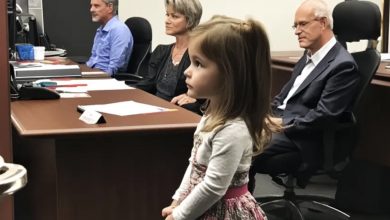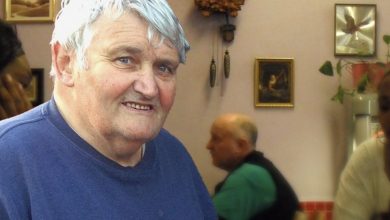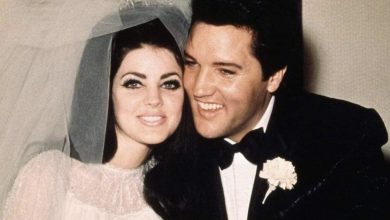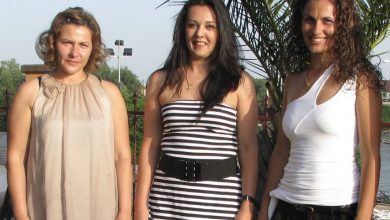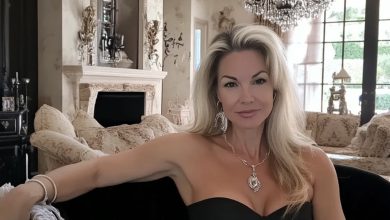The Locked Basement Promise That Forced a Confrontation and Led to a Quiet, Powerful Legal Victory
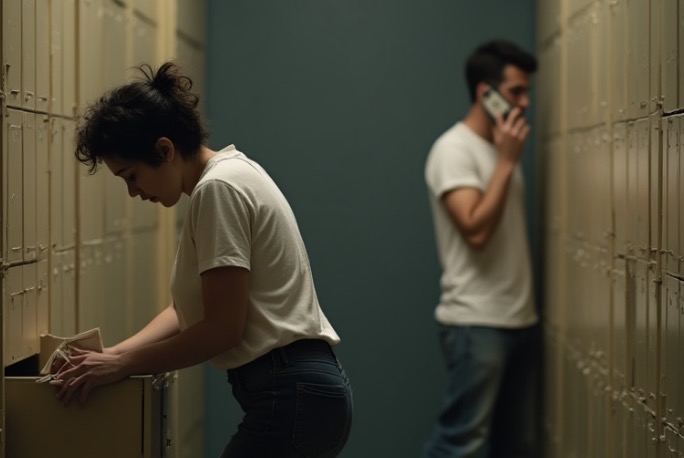
I had always kept the basement off-limits to my son. After he married a woman who seemed only interested in money, I had a keypad lock put on the door. While I was away on a business trip, my phone rang and Jasper’s voice came through, tight with panic. “Dad,” he said, “she went down. Amara went into the basement.” I had been waiting for that call.
I never let Jasper into the basement not because I did not trust him, but because what was down there needed protecting. The room held documents and keepsakes my late wife, Margaret, had set aside and carefully arranged. She asked me, with her thin hand in mine, to promise that I would guard what she left behind. She had seen cunning people take advantage of others. Before she died, she and I made a plan: the house, the savings, the things we built together would be safe for Jasper. I wanted to keep that promise.
Now, sitting in a conference room in Denver, I heard Jasper’s words and felt a cold drop in my stomach. “What did she see?” I asked, doing my best to keep my voice steady. Papers slipped from my fingers onto the polished table as if even the top of the stack wanted to fall.
“Everything, I think,” Jasper answered. “The cabinets are open. Papers everywhere. She’s furious, Dad. She’s saying awful things, about you and Mom. She wants to talk to you.”
“Don’t put her on,” I said quickly. “Buy me a flight. I’ll be home as soon as I can.”
“But she says you’ve been hiding things from me,” Jasper said, and his voice broke. “She says you don’t trust me. Is that true?”
That question hit like a knife. “Jasper, everything I did was to protect you,” I told him. “Your mother made me promise. Trust me until I get home. Promise me you won’t sign anything she gives you.”
There was a long pause, and for a moment I could picture his face. “Okay,” he finally said. “I promise. But she’s really angry, Dad. I’ve never seen her like this.”
Of course she was angry. She had just seen that the tidy house she imagined as her prize was guarded by rules she hadn’t expected. She had found that the documents that grounded our family, the trust and the letters Margaret left, were not hers to take. She had discovered that the prenuptial agreement Jasper had signed before the wedding was not a flimsy paper, but a strong legal wall.
“Be careful,” I told him. “Don’t sign anything. I’ll be home tonight.”
I hung up with trembling hands. I wasn’t shaking because I was afraid to fight. I was shaking from the weight of years spent keeping secrets to protect the one man who mattered most to me. Amara had opened a box that could not be closed.
When I first met Amara, something in my chest told me to watch her. Maybe it was a man’s instinct. Maybe it was the lessons Margaret had left me with. In dinners and small talks I watched how her eyes lingered on the chandelier, the paintings, the silver. She always asked questions about money and plans, about what would happen to the house someday. When Jasper said he wanted to marry her, I hugged him and smiled. Then I called my lawyer. A prenup was arranged—standard, tight, nothing suspicious to a careful reader. Amara signed without reading the fine print, eager to be the bride.
At first the changes she suggested were small—new paint, a modern couch, a brighter rug. Then the questions about my retirement plans came more often. When she moved in, she made casual remarks about how “the family home could be better used,” and when my answers were firm she’d act wounded. She played a long game, patient and slow, trying always to make Jasper see things her way. I did what I thought best: I kept the basement locked and the papers safe. I kept Margaret’s word.
When I arrived home that afternoon, the place looked wrong. The garden was trampled, plastic cups were scattered across the lawn like littered confetti, and the pool had float toys bobbing like forgotten toys. The music was too loud. Strangers lounged in rooms I had once made warm with small acts of kindness.
I walked up to the patio and saw Amara standing there, her smile bright like someone used to getting what she wanted. “Elliot,” she said—my name always came out of her mouth with a practiced sweetness—“we need to talk.”
We sat in the living room. She began quickly. “I found documents in the basement. Trust papers. Financial things. You’ve been hiding this from Jasper.”
“The papers are arranged and secured where they must be,” I told her. “They were meant to be kept safe.”
“Safe from your own son?” she spat. “Or safe from me?”
“Safe from those who would take them,” I said quietly. “Margaret asked me to protect them. I promised to do so.”
“You mean you made sure I couldn’t get at the money,” she said, laughing with no joy. “You made sure I would never be part of this family’s wealth.”
“You were never trying to be part of the family,” I said. “You were trying to buy your way in.”
The conversation turned sharp. Amara accused me of hiding things on purpose. She said I had no right to keep Jasper in the dark. Jasper stood up, his face a mix of shock and hurt. “Why would you keep things from me?” he asked.
“You should have known,” I replied. “I should have told you sooner. But your mother asked me to promise. She wanted to keep you safe. Sometimes love means being practical, even when it looks harsh.”
He walked out onto the patio as if the air would make things clearer. Amara followed later, voice raised. “You’re destroying our marriage,” she still said.
“You destroyed your own chances when you married for what you thought was money,” I answered.
Then the truth came out piece by piece. A loan co-signed by Jasper for an expensive car. Large charges for designer items. Promises Amara had made about finding a job she never kept. Small, careful steps that showed a pattern—spend first, sort it out later. And behind it all a hunt for ways to access the trust: attempts to change beneficiaries, requests for death certificates, and a ring of payments that looked like a plan.
“It was never about love for her,” I told Jasper softly. “It was about security.”
He sank to the stairs, the weight of what he had done pressed down on him. “I was blind,” he said. “I wanted to believe.”
“You loved her,” I said. “Love makes us blind to facts we might otherwise see.”
She packed a bag and left that night. She took only what she could carry. She asked Jasper for some money for a hotel, then left in a taxi, the click of her suitcase wheels sounding like a closing curtain. He sat on the steps, head bowed, all the tiredness of a hard lesson showing in his shoulders.
I drove Jasper to the basement. He watched as I typed the code—his mother’s birthday—and the lock clicked open. Closing the door behind us, the air smelled of old paper and dust and home. Filing cabinets lined the wall. Boxes filled with Margaret’s things sat on the shelves. I reached for a manila envelope with his name written on it. “She wrote this for you,” I said. “She wanted you to have it when you were ready.”
He read the letter with shaking hands. Tears rolled down his face. In the cramped light of the basement he saw what Margaret had seen long before: that protection sometimes looks like secrecy. That love can be quiet and practical. He understood, slowly, how much his mother had loved him and how grave a threat had stood at the door.
We took steps to fix things. With the help of a good lawyer, we kept the trust intact. Amara tried to dispute things in the beginning, but the prenup and the careful paperwork Margaret had arranged were solid. In time, the law confirmed what the papers said. She left with little more than a lesson—and the price of that lesson was steep.
Six months later, life had a quieter rhythm. Jasper and I worked in the garden and in the workshop. We repaired what had been broken and put things back where they belonged. He met someone new, Diane, who paid for her own coffee and loved work that had meaning. She listened when he told the story—no drama, no judging. She simply understood.
“I want to help others,” Jasper said one evening while we sat in the quiet of the kitchen. “Mom would have wanted that, right? To protect more than just our family.”
“Yes,” I said. “She would be proud.”
We started a small scholarship in Margaret’s name to help young people who lost a parent and needed support to finish their education. That idea felt right; it honored what she had always valued. The trust had done its job by protecting the estate, but the important thing was what we chose to do with the freedom it gave us.
I learned a lot from that storm. I learned that caution is not the same as coldness. I learned that keeping a secret to protect someone can be an act of love. I learned also to be clearer with Jasper, to show him the reasons and the plans, not only the rules. He needed both the protection and the explanation.
In time, when I stand in my workshop and run my hand over a familiar tool, the pain of those days softens. The house echoes less with noise and more with the steady rhythm of life. The roses grew back in the garden. The scholarship helped a student pay tuition. Jasper found a partner who matched him, not a cost to be paid.
Amara’s brief, hungry visit had cracked something open, but it did not destroy us. It forced us to look, to act, and to rebuild. The basement remained locked to outsiders, not because it was treasure, but because it held memory. The house kept its stories safe, and in the end that was the greatest legacy of all.


